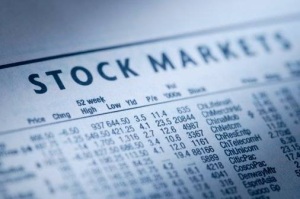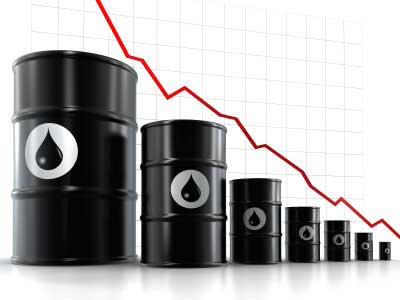QUOTE OF THE WEEK
Money can’t buy happiness – but somehow it’s more comfortable to
cry in a Porsche than in a Corolla.
Unknown
FROM WITHIN DETON:
There has been a reasonable amount of panic amongst some clients over the fund’s performances of late. To fair, we have been warning of the potential for short term volatility quite a bit over the past few months, so this should not have been a total shock – we have entered a very scratchy period in the global economic arena (as discussed in more detail below). Is this a crisis? No, we don’t believe it to be the beginning of the end. In fact, we actually welcome a correction as things have become a little bit to “frothy” of late.
On the positive side, this correction also presents buying opportunities. In the words of Warren Buffet: “be scared when everyone is greedy and be greedy when everyone is scared”. We have been scared and thus had quite a lot of protection in the funds, as everyone out there was being greedy. Now that there is a bit of a panic, we see an opportunity to do some shopping.
But just how have we faired amidst all of this since the peak in the JSE Overall Index on the 29th July to date, and have we done what you pay us to do? We believe we have, and the numbers stack up as follows (note that I have NOT included the Balanced portfolio, as this has only just kicked off, so not enough data for that):
|
29/07/2014
|
CURRENT
|
|
|
JSE
|
52242
|
48712
|
-6.76%
|
|
STABLE
|
10502
|
10470
|
-0.30%
|
|
MANAGED
|
10761
|
10694
|
-0.62%
|
|
EQUITY
|
10689
|
10572
|
-1.09%
|
|
GLOBAL
|
10180
|
10374
|
1.91%
|
So I would hazard a guess that we HAVE done our job, with the equity fund only falling 1.09% VS the JSE at 6.76%. Please note, however, that should you be drawing an income, you WILL see slightly different returns depending on how much you are drawing.
I trust that this eases your minds somewhat?
GLOBAL SNAPSHOT
|
Current
|
Weekly change
|
Monthly Change
|
Annual Change
|
|
JSE ALL SHARE
|
48712
|
48875
|
51610
|
43726
|
|
|
-0.33%
|
-5.62%
|
11.40%
|
|
DOW JONES (USA)
|
16719
|
16805
|
17111
|
14777
|
|
|
-0.51%
|
-2.29%
|
13.14%
|
|
FTSE (UK)
|
6496
|
6558
|
6835
|
6437
|
|
|
-0.95%
|
-4.96%
|
0.92%
|
|
DAX (GERMANY)
|
9086
|
9382
|
9758
|
8592
|
|
|
-3.15%
|
-6.89%
|
5.75%
|
|
ZAR/US$
|
11.24
|
11.24
|
10.67
|
9.96
|
|
|
0.00%
|
-5.07%
|
-11.39%
|
|
ZAR/POUND
|
18.02
|
18.25
|
17.41
|
16.04
|
|
|
1.28%
|
-3.39%
|
-10.99%
|
|
ZAR/EURO
|
14.19
|
14.2
|
13.94
|
13.55
|
|
|
0.07%
|
-1.76%
|
-4.51%
|
|
BRENT CRUDE OIL
|
91.01
|
94.12
|
100.28
|
109.64
|
|
|
3.42%
|
10.19%
|
20.47%
|
|
GOLD
|
1212
|
1209
|
1259
|
1324
|
|
|
0.25%
|
-3.73%
|
-8.46%
|
It does not take a rocket scientist to see that it is not just us at home who are under pressure. Europe, in particular, is not looking very pretty right now!
GLOBAL MARKETS
According to Reuters, US markets closed slightly lower in volatile trading on Monday, with the S&P 500 index failing to hold above a key technical level as there were no real catalysts to support the market, while traders nervously turned their attention to the start of earnings season due to the recent Dollar strength and continued weakness in the Eurozone.
The week saw some good news on the housing front in the US. Home prices were up 0.6% in July, but the annual growth rate slowed down, rising 6.7% yoy. This, in fact, was a good report since home prices are starting to outpace inflation and every tick up translates to more upside for home owners who have been underwater for some time now. The ADP payroll report showed that private sector hiring picked up in September, adding 213 000 jobs, the 6th consecutive month in excess of 200K in job growth. Fundamentals in the US continue to strengthen.
The IMF said it expects the Federal Reserve to start raising interest rates in the middle of next year, a projection that’s in line with the median estimate of economists surveyed by Bloomberg. The U.S. central bank has held the federal funds target rate near zero since December 2008.
“The slack in the economy, well-anchored inflation expectations, and downside risks to the outlook imply that the current accommodative monetary policy remains appropriate,” according to the fund.
The euro area will grow 1.3% next year, slower than the 1.5% pace predicted in July, after a 0.8 percent gain this year, according to the IMF.
“We see the major risk in the stalling of the euro zone,” IMF Economic Counselor Olivier Blanchard said in an interview on Bloomberg Television. “The risk of recession is there,” he said, adding that European authorities should increase infrastructure spending to boost growth. If inflation doesn’t improve in the currency bloc, the European Central Bank may need to do more to stave off deflation, including the purchase of sovereign bonds, according to the fund.
In Europe, the ECB president, Mario Draghi, missed a critical opportunity to expand QE to sovereign debt purchases. Meanwhile, the Eurozone’s economic powerhouse, Germany, posted a contraction in its manufacturing sector, a precursor to recession. The ECB also kept its main policy rate unchanged and disappointed investors who had hoped for a commitment to ECB balance sheet expansion.
LOCAL MARKETS
Back in South Africa, the continued bullish US economic data has put pressure on EM currencies, particularly the ZAR. However, the rand climbed as much as 0.9% against the dollar on Monday as investors applauded the appointment of respected technocrat Lesetja Kganyago to succeed Gill Marcus as central bank governor.
South Africa’s August trade and budget balance data reflected notably wider-than-expected deficits, highlighting that the country’s twin deficit problems remain severe. The BER consumer confidence index (CCI) reversed course and fell back to -1 in Q3 2014, which indicates that consumers’ rating of the outlook for the national economy and their own household finances deteriorated compared with the reading in Q2. On a more positive note, the manufacturing PMI printed above 50 for the first time since March 2014, signalling that operating conditions continue to improve gradually.
The gold price traded above the $1,200 an ounce level in Singapore on Tuesday, following some profit-taking in the US Dollar, but bullish sentiment over the US economy, as well as the possibility of higher interest rates kept investors on their toes. Gold was last trading at $1,204.60, with the platinum price quoted at $1,242.00, while palladium is trading at $768.10.
SEYMOUR SAYS….
THE MAGIC BANK ACCOUNT
OK, this is not a traditionally insightful comment from young Seymour around financial markets etc., but it was forwarded to me by a friend and I felt that I just have to share it with all of you – CALL ME A SOFTIE IF YOU LIKE!
The author is unknown, and it was found in the billfold of coach Paul Bear Bryant after he died in 1982.
Here we go – Imagine that you had won the following *PRIZE* in a contest: Each morning your bank would deposit $86,400 in your private account for your use. However, this prize has rules:
The set of rules:
- Everything that you didn’t spend during each day would be taken away from you.
- You may not simply transfer money into some other account.
- You may only spend it.
- Each morning upon awakening, the bank opens your account with another $86,400 for that day.
- The bank can end the game without warning; at any time it can say, “Game Over!”
- It can close the account and you will not receive a new one.
What would you personally do?
You would buy anything and everything you wanted right? Not only for yourself, but for all the people you love and care for. Even for people you don’t know, because you couldn’t possibly spend it all on yourself, right?
You would try to spend every penny, and use it all, because you knew it would be replenished in the morning, right?
ACTUALLY, This GAME is REAL …
Each of us is already a winner of this *PRIZE* – We just can’t seem to see it.
The PRIZE is *TIME*
- Each morning when we awaken, we receive 86,400 seconds as a gift of life.
- And when we go to sleep at night, any remaining time is NOT credited to us.
- What we haven’t used up that day is forever lost.
- Yesterday is forever gone.
- Each morning the account is refilled, but the bank can dissolve your account at any time WITHOUT WARNING…
SO, what will YOU do with your 86,400 seconds? Those seconds are worth so much more than the same amount in dollars. Think about it and remember to enjoy every second of your life, because time races by so much quicker than you think.
So take care of yourself, be happy, love deeply and enjoy life! Here’s wishing you a wonderful and beautiful day. Start spending….
“DON’T COMPLAIN ABOUT GROWING OLD!
SOME PEOPLE DON’T GET THE PRIVILEGE!”
LIGHTER SIDE
“4 Worms In Church”
A minister decided that a visual demonstration would add emphasis to his Sunday sermon. Four worms were placed into four separate jars.
- The first worm was put into a container of alcohol.
- The second worm was put into a container of cigarette smoke.
- The third worm was put into a container of chocolate syrup.
- The fourth worm was put into a container of good clean soil.
At the conclusion of the sermon, the Minister reported the following results:
The first worm in alcohol ………. Dead;
The second worm in cigarette smoke …….. Dead;
Third worm in chocolate syrup ………… Dead;
Fourth worm in good clean soil …………Alive
So the Minister asked the congregation, “What did you learn from this demonstration?”
Maxine was sitting in the back, quickly raised her hand and said . .. .
“As long as you drink, smoke and eat chocolate, you won’t have worms!”
That pretty much ended the service!



